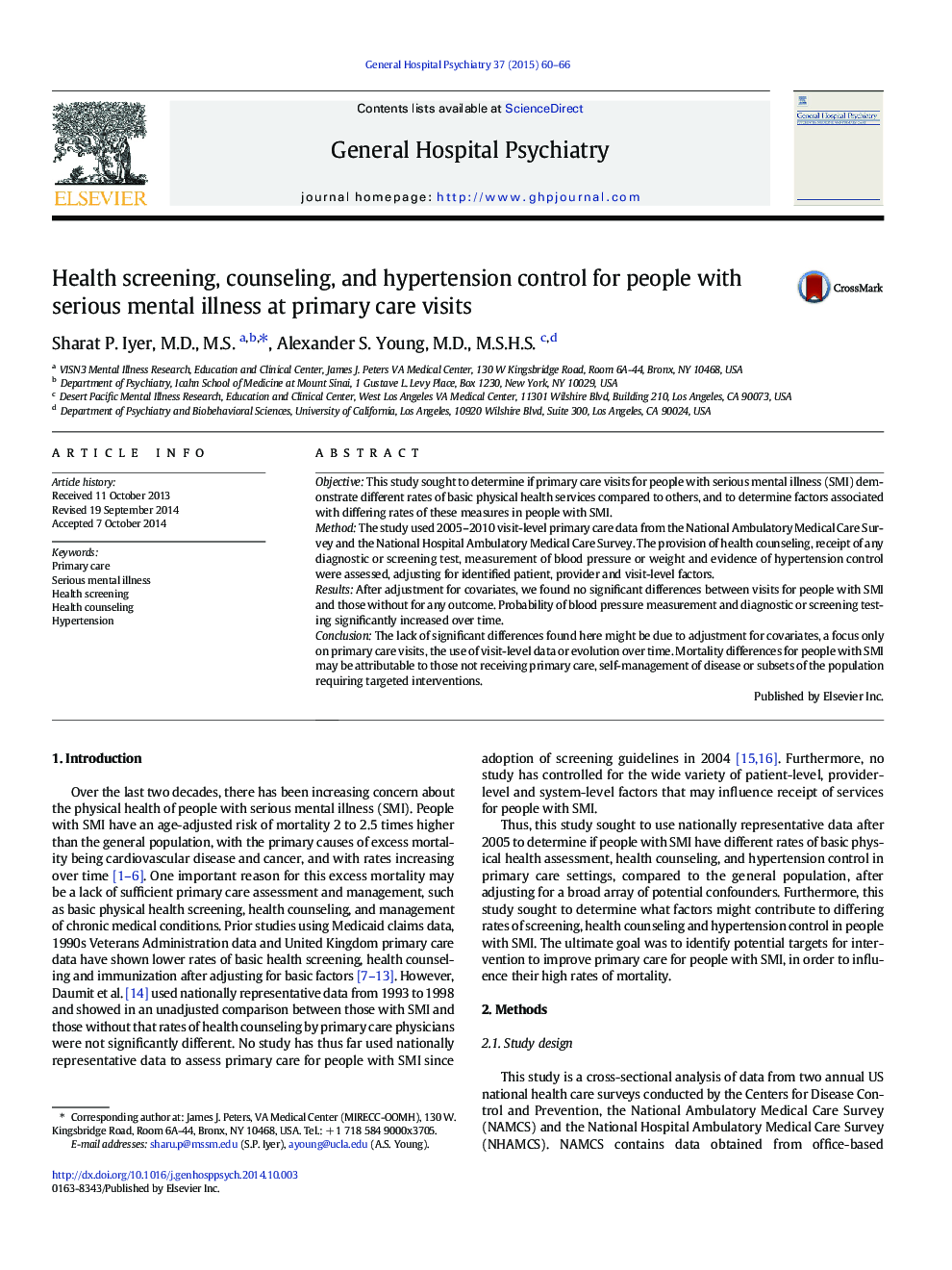| Article ID | Journal | Published Year | Pages | File Type |
|---|---|---|---|---|
| 6082296 | General Hospital Psychiatry | 2015 | 7 Pages |
ObjectiveThis study sought to determine if primary care visits for people with serious mental illness (SMI) demonstrate different rates of basic physical health services compared to others, and to determine factors associated with differing rates of these measures in people with SMI.MethodThe study used 2005-2010 visit-level primary care data from the National Ambulatory Medical Care Survey and the National Hospital Ambulatory Medical Care Survey. The provision of health counseling, receipt of any diagnostic or screening test, measurement of blood pressure or weight and evidence of hypertension control were assessed, adjusting for identified patient, provider and visit-level factors.ResultsAfter adjustment for covariates, we found no significant differences between visits for people with SMI and those without for any outcome. Probability of blood pressure measurement and diagnostic or screening testing significantly increased over time.ConclusionThe lack of significant differences found here might be due to adjustment for covariates, a focus only on primary care visits, the use of visit-level data or evolution over time. Mortality differences for people with SMI may be attributable to those not receiving primary care, self-management of disease or subsets of the population requiring targeted interventions.
